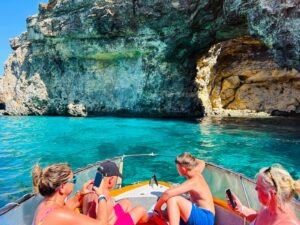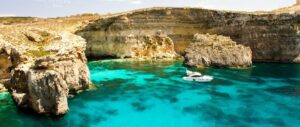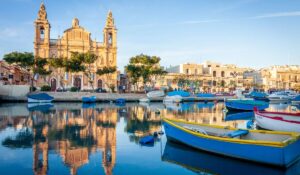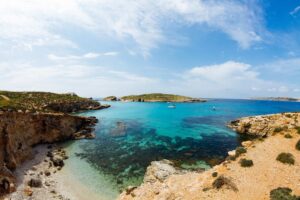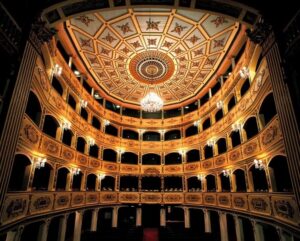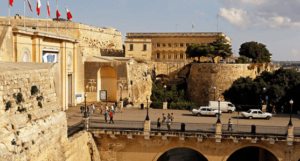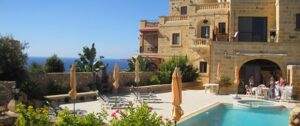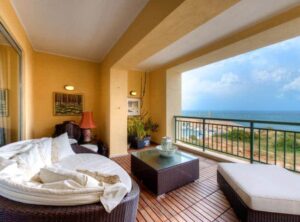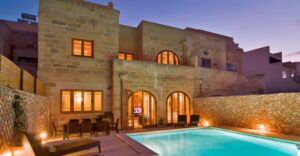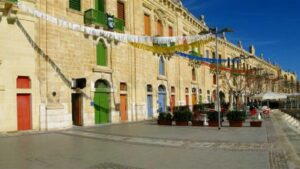
It’s in the idyllic setting of Malta that some Europeans decide to retire.
The island of honey combines, among other things, cultural wealth, with its five thousand year old temples and fortified cities, and gastronomy that combines Sicilian, North African and English culinary influences. So retiring to Malta is a wise choice. In fact, Malta has consistently appeared in the top ranks of the countries where it is good to live, according to the Eurobarometer, since 2015.
Reasons to retire in Malta
Malta is an open and cosmopolitan country where over 170 nationalities are represented.
In fact, the majority of Maltese are fluent in at least two, if not three, languages, which is a clear advantage over other countries. English is the second national language. You will have no difficulty learning it. This way, you will be able to integrate easily, especially since the Maltese are very welcoming. Italian is also a widely used language on the island. Other languages are studied in school but few Maltese speak it.
Climate in Malta

With temperatures ranging from 15 to 30 degrees, Malta enjoys a favorable climate all year round.
And the sun is king with more than 300 days of sunshine per year. So you can enjoy a sunny retirement visiting the many tourist sites and relaxing on the heavenly beaches. In fact, several major international studies rank Malta as one of the countries in the world with the best quality of life. It is also among the safest countries in the world.
Health care system in Malta
Malta also has the best performing healthcare system in the EU after France.
Health care facilities are equipped with state-of-the-art technology and highly trained specialists. This applies to both public hospitals and private clinics. Health care is free of charge in the many public institutions on the archipelago. Private clinics are not free. Some general practitioners consult in pharmacies and the cost of a consultation varies between 15 and 20 euros.
Prices in Malta

With a standard of living about 25% lower than in France, some expenses, such as real estate and food, are lower.
The cost of living is indeed lower in Malta and your purchasing power with your pensions will inevitably be affected. However, imported products will be more expensive because of transportation. Also, real estate in certain cities such as Sliema or St julian’s will have a higher price than elsewhere on the island.
Real estate is booming, so you can choose between a home in a recent building with all the necessary facilities, a home with more rustic charm in less populated areas or a very well equipped villa.
However, it is important to be well informed about the city in which you wish to settle. Indeed, if you are looking for a quiet and peaceful environment, some cities should be avoided because of their very active nightlife.
For your property search in Malta and Gozo, many real estate agencies will be able to help and advise you in your search. You can also call upon the experts of Malta Advice who offer different levels of services according to your needs.
Access to Malta
Thanks to its location and the quality of its infrastructure, Malta is also an easily accessible island.
Most major European capitals can be reached in less than 3 hours by plane. The international airport directly serves 37 major cities in the world. To get around the island you will have more than 80 bus lines at your disposal and the road network has also been improved.
Getting advice on retirement in Malta
Finally, as with any retirement project abroad, you need to be well prepared and informed about the various administrative procedures and taxes. Also in this respect, Malta is an extremely attractive country to retire in.
After three months of living in Malta, you will need to apply for a residence permit. Registering with the Embassy of your country in Malta is also useful, as it will guide you through the process. If you are retired from the system of another country in Europe, please note that it is important to apply for a transfer of your rights to the health insurance system of your country in order to be able to register with the health insurance system of your new residence.
As far as taxation is concerned, a European person living in Malta is considered as being fiscally domiciled outside of France, and therefore non-resident. The pension remains taxable only in your country. Nevertheless, thanks to its double taxation agreement signed with more than 70 countries, including France, you can repatriate your income to the island without taxation in the country of origin.
High earners can also take advantage of the Malta Retirement Programme. This specific program is ideal for protecting your assets. You will benefit from a 15% income tax rate for foreign source capital repatriated to Malta such as your retirement pension. This advantageous tax is applied on condition that you have a minimum tax of 7500 euros per year and 500 euros per dependent. Certain conditions are required to be eligible for this program and the membership fee is 2500 euros. Source Malte Conseils
The experts of Malta Advice help many retirees to prepare their retirement in Malta. They will guide you through the administrative steps to be taken for your expatriation. All you have to do is move and enjoy the mild Mediterranean air on the sandy beaches of Malta!



